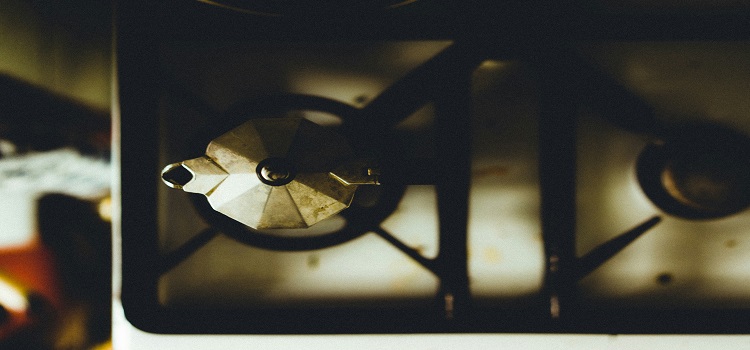As an Amazon Associate I earn from qualifying purchases.
Addressing the Consequences: Gas Stove Left On All Day Without Flame
Introduction: Discovering that you left your gas stove on all day without a flame can be a cause for concern. Beyond the potential waste of energy, it raises safety issues regarding gas leakage, fire hazards, and carbon monoxide exposure. In this comprehensive guide, we’ll explore the implications of leaving a gas stove on without a flame, safety measures to take, and answers to common questions to help you address this situation effectively.

Uses of Gas Stoves: Gas stoves are essential kitchen appliances utilized for cooking a wide range of meals. Their efficiency, precise temperature control, and instant heat make them indispensable in households and commercial kitchens alike.
Benefits of Gas Stoves:
- Efficient Cooking: Gas stoves provide immediate heat, allowing for quick preheating and precise temperature control during cooking.
- Versatility: Gas stoves accommodate various cooking techniques and cookware types, making them suitable for a wide range of culinary tasks.
- Reliability: Gas stoves continue to operate during power outages, ensuring uninterrupted cooking capabilities even when electricity is unavailable.
- Energy Efficiency: Gas stoves are often more energy-efficient than electric alternatives, potentially reducing utility costs over time.
Implications of Leaving Gas Stove On Without Flame:
- Gas Leakage: A gas stove left on without a flame can result in gas leakage, posing risks of gas buildup and potential explosions if ignited.
- Fire Hazards: The presence of unignited gas can lead to fire hazards if sparked by external sources such as electrical sparks or open flames.
- Carbon Monoxide Exposure: Incomplete combustion of gas produces carbon monoxide, a colorless, odorless gas that can be harmful or fatal if inhaled in high concentrations, especially in poorly ventilated spaces.
Safety Measures to Take:
- Turn Off Gas Supply: Immediately turn off the gas supply at the main valve upon discovering the gas stove left on without a flame.
- Ventilate the Area: Open windows and doors to ventilate the kitchen and surrounding areas, allowing fresh air to disperse any accumulated gas and reduce the risk of gas buildup.
- Check for Gas Odors: Sniff for the distinctive odor of natural gas, resembling rotten eggs. If detected, evacuate the premises immediately and contact the gas provider or emergency services for assistance.
- Inspect for Damage: After turning off the gas supply and ventilating the area, inspect the gas stove for any signs of damage or malfunction that may have contributed to the incident.
- Seek Professional Assistance: If unsure how to safely address the situation or if gas odors persist, seek assistance from a licensed technician or gas provider to inspect the stove and ensure it is safe for use.
FAQs (Frequently Asked Questions):
- What should I do if I left my gas stove on all day without a flame?
- Immediately turn off the gas supply, ventilate the area, and inspect the stove for any signs of damage or gas leakage. If in doubt, seek professional assistance.
- Can leaving a gas stove on without a flame cause an explosion?
- While rare, the presence of unignited gas can increase the risk of explosion if ignited by external sources such as electrical sparks or open flames.
- Is it safe to use the gas stove after leaving it on without a flame?
- It is not safe to use the gas stove until it has been inspected and deemed safe by a qualified technician to ensure there is no gas leakage or damage.
- How can I prevent accidentally leaving my gas stove on without a flame in the future?
- Develop a habit of double-checking the stove before leaving the kitchen or using timer reminders to ensure it is turned off after use.
- Should I install a gas detector in my kitchen for added safety?
- Installing a gas detector can provide an additional layer of safety by alerting you to the presence of gas leaks, allowing for prompt action to mitigate risks.
- Can leaving a gas stove on without a flame increase my utility bills?
- Leaving a gas stove on without a flame can result in wasted gas consumption, potentially leading to higher utility bills if left unattended for extended periods.
- Is it normal for gas stoves to emit a small amount of gas when turned off?
- Minimal gas emissions from gas stoves when turned off are normal due to residual gas in the lines. However, persistent or strong gas odors indicate a potential issue that requires attention.
- Can I safely relight the gas stove after it has been left on without a flame?
- It is not advisable to relight the gas stove until it has been inspected and deemed safe by a qualified technician to ensure there are no gas leaks or other safety concerns.
- Should I evacuate my home if I detect a gas odor after leaving the gas stove on without a flame?
- Yes, if you detect a gas odor after leaving the gas stove on without a flame, evacuate the premises immediately and contact the gas provider or emergency services for assistance.
- How often should I have my gas stove inspected for safety?
- Schedule regular maintenance inspections by a licensed technician to ensure the safe and efficient operation of your gas stove and address any potential issues promptly.
Conclusion: Discovering that you left your gas stove on all day without a flame is a concerning situation that requires immediate action to ensure safety and prevent potential hazards. By following the safety measures outlined in this guide, seeking professional assistance as needed, and taking steps to prevent future incidents, you can maintain a safe and functional cooking environment in your kitchen. Stay vigilant, prioritize safety, and address any gas-related concerns promptly to protect yourself and your loved ones from potential risks.
As an Amazon Associate I earn from qualifying purchases.
Leave a Reply